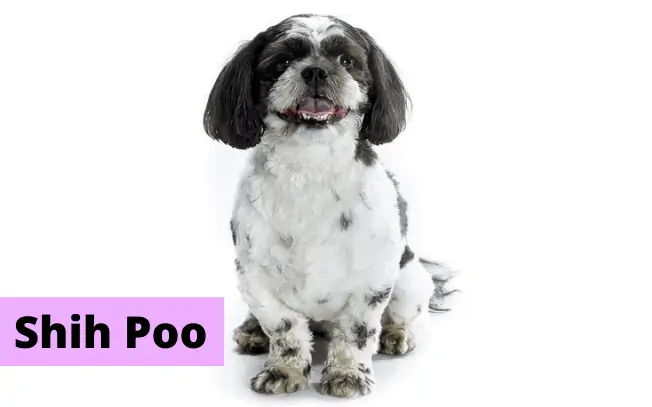Last Updated on
Shih Poos are a popular mixed breed dog. These charming and affectionate dogs are known for their playful personalities, low-shedding coats, and affectionate nature.
In this article, we will explore the history, characteristics, and care requirements of Shih Poos so you can decide whether this adorable pup is right for you. We’ll also hear from a Shih Poo owner on what she wished she knew before getting her Shih Poo dog.
Ready? Let’s dive in.
| Shih Poo Quick Facts | |
| Weight | 13 to 20 pounds |
| Height | 8 to 13 inches tall |
| Temperament | Playful, energetic, stubborn, affectionate |
| Lifespan | 12 to 15 years |
What is a Shih Poo?
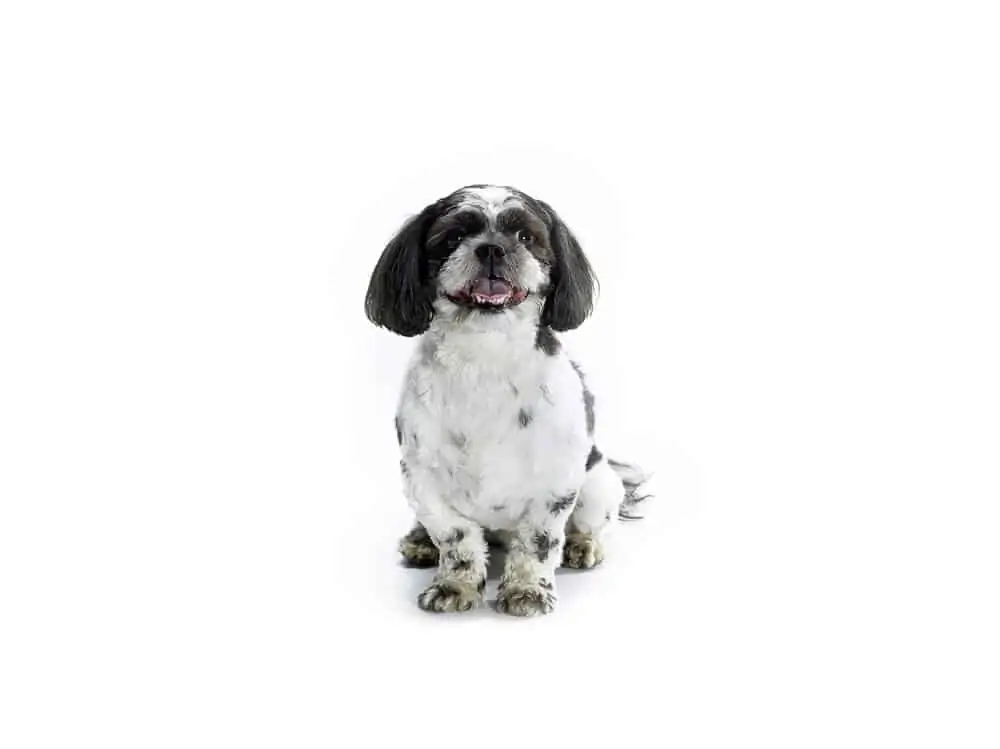
A Shih Poo a mix between a Shih Tzu and a Toy Poodle. Shih Poos are often referred to as “designer dogs” which is just a fancy term for mixed breeds.
Mixed-breed dogs are becoming increasingly popular as they tend to have fewer health problems than purebred dogs.
As a bonus, when bred with a Poodle, they’re low-shedding and often retain many of the unique characteristics of both parent breeds.
(We’ll dig deeper into each of the parent breeds and their personalities later in this article so you know what to expect from a Shih Poo.)
Although the Shih Poo doesn’t have a clear history of where their story began, it’s typically thought that Shih Poos were bred in the United States within the past few decades.
Appearance
The appears of a Shih Poo depends which parent breed it takes after more. Let’s explore the different coats, colors, and sizes of a typical Shih Poo.
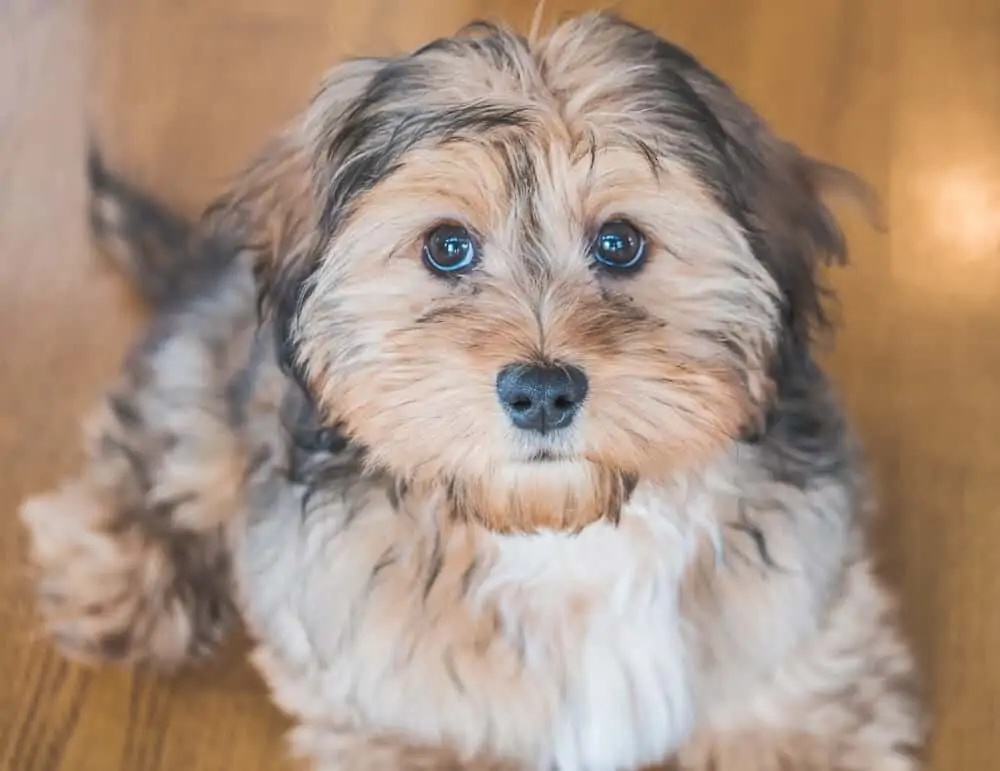
Coat
If the pup takes after the Shih Tzu more, the length and texture of their coat will be longer, silky-like, and straight. But if they sway the other way towards the miniature or toy Poodle, their coat will be shorter and curlier.
Quite opposite sides of the spectrum, right?
Although their coats can vary, Shih Poos coats are typically a mix of both parent breeds, which leads to a gorgeous wavy coat that is medium in length (unless you shave your Shih Poo and groom their hair shorter).
Color
Along with the difference in coat types, there is a mixed bag of possibilities with the coat colors as well. Both the Shih Tzu and the Poodle come in a range of colors, which is why you can see Shih Poos in colors like:
- White
- Grey
- Black
- Brown
- Cream
- Red
On top of coming in different colors, Shih Poos can be one solor color, or they can be a mix of different colors. They can even be brindle, thanks to their Shih Tzu parent!
Height and weight
Thanks to both parent breeds, the Shih Poo is a small dog that stands between 8 to 13 inches tall and weights anywhere from 13 to 20 pounds (normally). Shih Poos bred with a Miniature Poodle will be slightly bigger than those with a Toy Poodle parent.
Even though they’re small dogs, they love to eat and owners must be careful about overfeeding. A few additional pounds on a small dog’s frame can cause joint and mobility issues, so it’s important to keep your pup trim!
You can spoil your pup in other ways, though, like showering them with bunches of love and attention. Keeping your pet’s vet in the loop of what their diet looks like regarding the type of food they are eating and their meal times will help your vet provide the right guidance and care for your Shih Poo.
Personality and temperament
Let’s dive into the Shih Poo’s parent breeds to understand where this mixed-breed gets it’s unique personality from.
Toy/Miniature Poodle
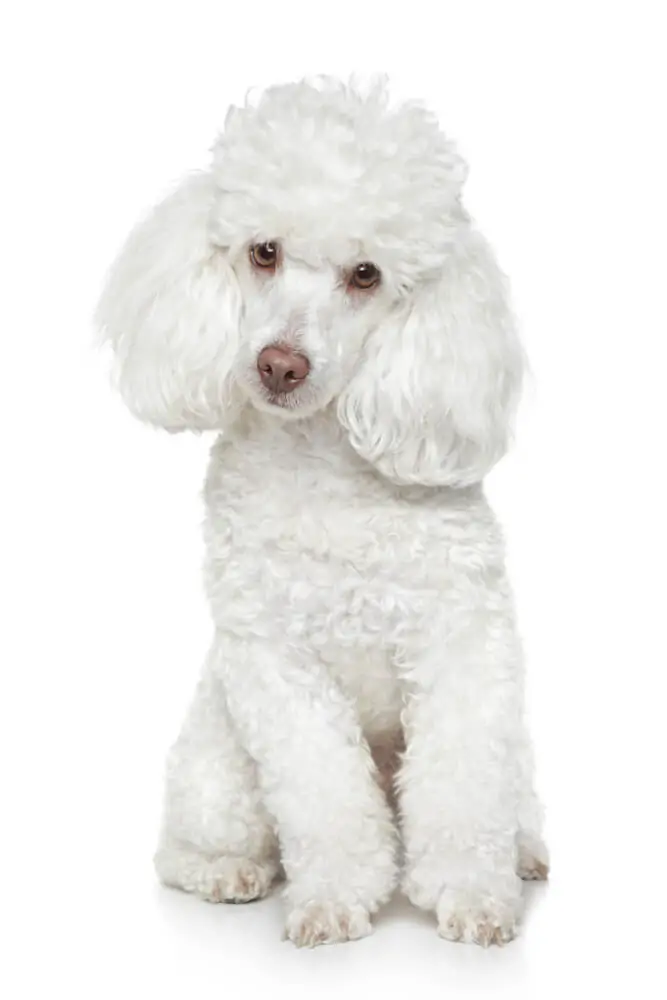
For a little dog, the Toy/Miniature Poodle can really pack in a lot of fun!
They’re incredibly affectionate and playful, always ready to fetch, tug, or learn something new.
Poodles are famous for their intelligence and the Standard variety was originally bred to hunt. But as more and more people fell in love with Standard Poodles, they wanted smaller ones to keep as companions. Thus, the Miniature Poodle was bred and has been a wonderful pet ever since.
Miniature Poodles are easy to train but require homes that will provide enough stimulation, otherwise, they will get bored and get into trouble (think chewing your shoes).
In short, no pun intended, the miniature/toy Poodle is a friendly, fun-loving, affectionate dog that requires training but is well worth it for the companionship they provide.
Shih Tzu
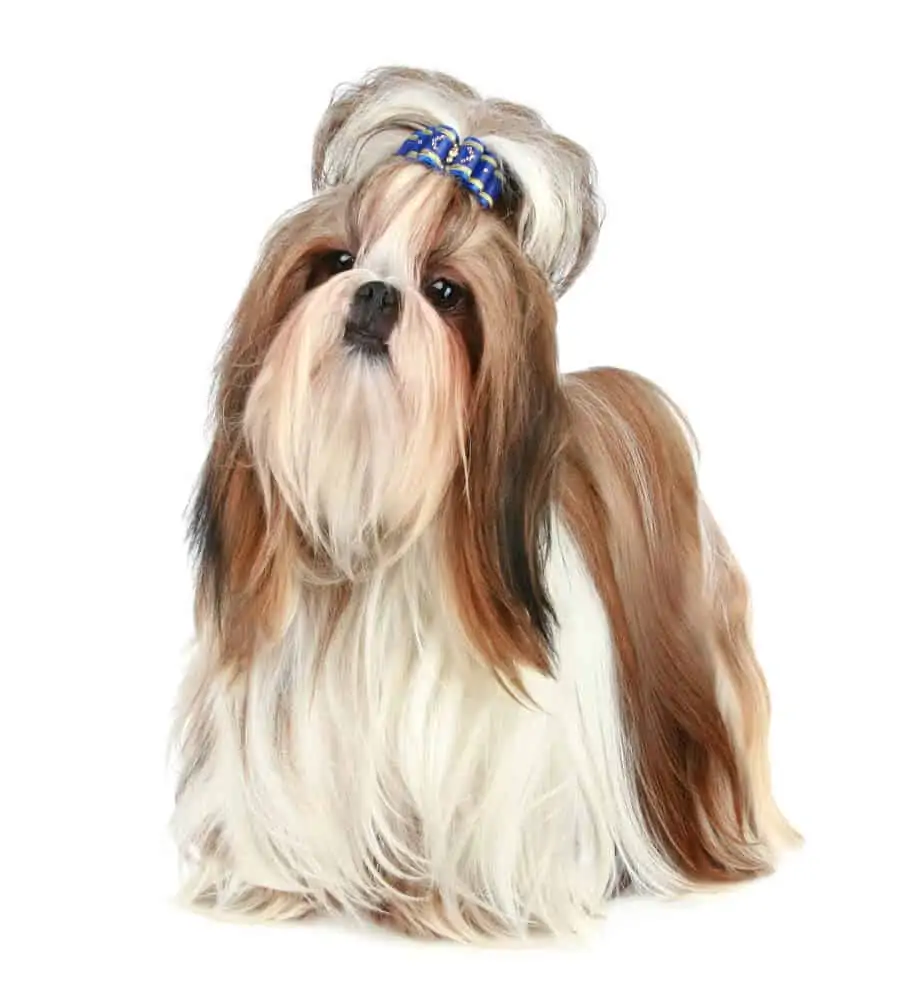
Just like the miniature/toy Poodle, the Shih Tzu is a very playful and friendly dog! They love to show their owner’s affection and love, along with being silly and playful. These good boys and girls will befriend just about anyone. They get along well with other animals but may not love cats.
Despite being small dogs, Shih Tzus tend to be protective and will bark if they detect a stranger nearby.
Unlike Poodles, Shih Tzus have a slight stubborn streak to them, and training may not come as easy as it would with a Poodle—patience and persistence are key with this pup!
To bring it all in, the Shih Tzu is a fun-loving dog who likes to love and be loved by everyone except strangers (at first), they may need some extra patience with training.
Shih Poo
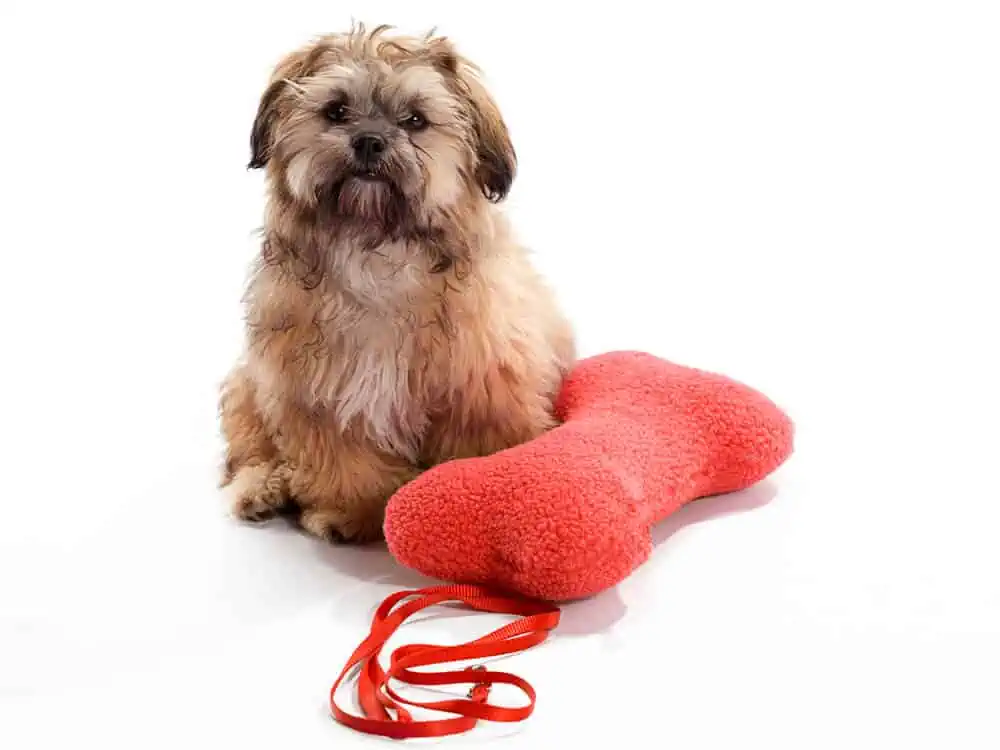
Now that we know about the parent breeds let’s talk about what the Shih Poo is like.
Playful
Shih Poos LOVE to play with people and other dogs. If you have kids, you can expect the Shih Poo to keep busy with your kids all day long. (Just make sure to supervise any playtime.)
Energetic
Although small, Shih Poos aren’t couch potatoes and need daily exercise. Laura says that she has to be diligent with exercising her Shih Poo, otherwise, he becomes stir-crazy:
If Patrick doesn’t get several walks, outings in the car, or spend time outside, he would be stir-crazy and obnoxious, like so many [other] small dogs folks have, and they don’t understand why the dog is driving them nuts. [You] must allow safe areas to burn the energy!
Laura, Shih Poo owner
Exercise for a Shih Poo can consist of several short walks or playtime in a fenced-in backyard. And because Shih Poos are so small, you can even play with them right in your living room, making it easy to tire them out on days when the weather is less than ideal!
Affectionate
Shih Poos absolutely adore their family and want nothing more than to be near them at all times. They’re not fond of being left alone for a long time and thrive in homes where they get plenty of attention.
Despite being affectionate, Shih Poos tend to be shy and wary of new people. But after some time and trust, they’ll be cuddling up on your lap and waiting for you to throw the ball in no time. More than often, the Shih Poo is outgoing and loves to be showered with positive attention.
Stubborn
Although they’re smart, most Shih Poos inherit the Shih Tzu’s stubbornness and require patience with training. But with enough consistency, they’ll quickly learn commands, cues, and tricks.
Grooming a Shih Poo
Poodle mix dogs require lots of at-home grooming and trips to a professional, and the Shih Poo is no exception. Shih Poos have high-maintenance coats and require daily brushing, or at minimum, every other day. If not, their coats can become matted, which is painful and can often result in infections.
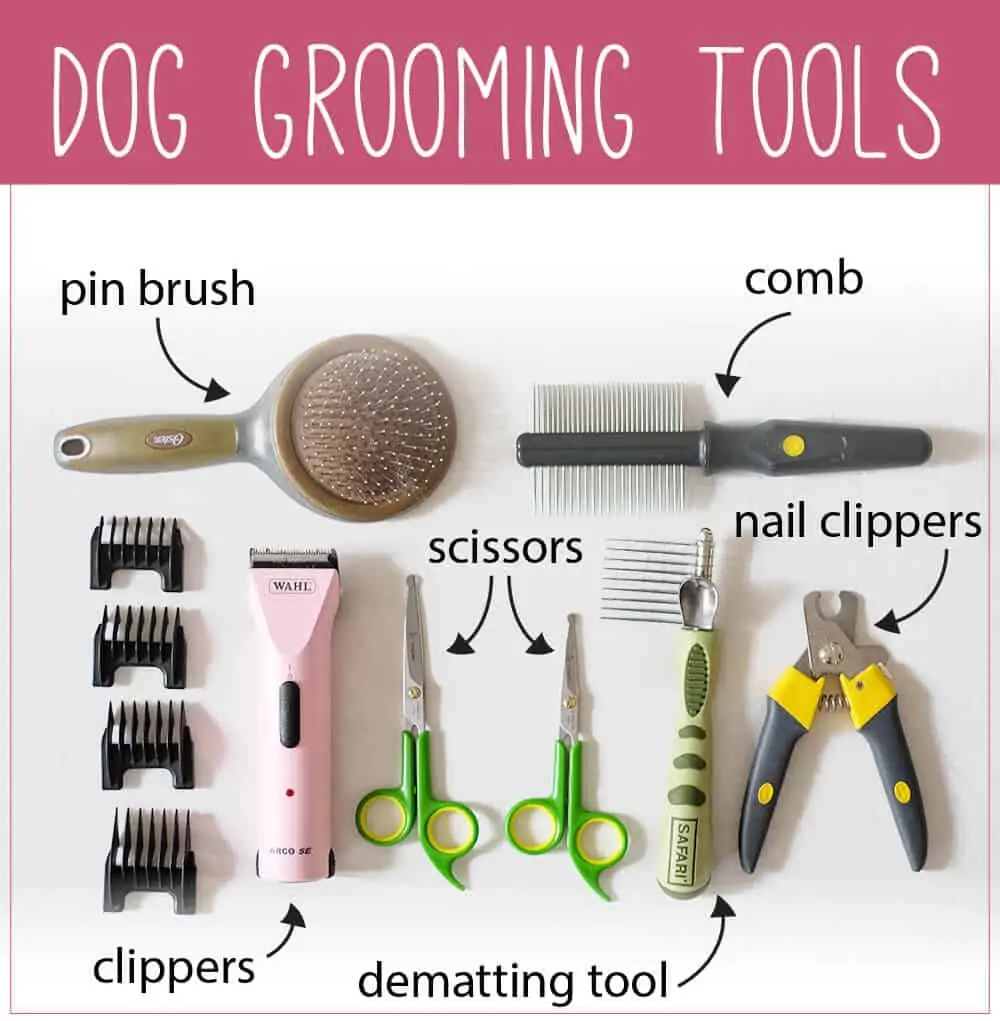
Whether you’re a wizard with the scissors or rely on a groomer, make sure their hair gets a trim every so often to maintain that cute shape and style. But if you’re into the long-haired look, just remember to brush them every day and schedule the occasional visit to the groomer.
Aside from regular grooming, there are a few other things to keep in mind. For example, their ears need to be cleaned frequently, otherwise, they can get infected.
Lastly, let’s not forget about those nails and tear stains. Clip their nails when they start to look too long and don’t forget to give some TLC to their eyes—Shih Poos tend to develop tear stains, but you can keep the fur around their eyes from staining by wiping their face with a damp washcloth every day.
Cost
The cost of a Shih Poo puppy ranges from $1,500 to $4,000+ depending on where you live, but in most cases, you’ll pay a premium to get a healthy puppy and you should be wary of breeders offering Shih Poo puppies for rock-bottom prices. It’s crucial to ensure that you’re getting your puppy from an ethical breeder. Here are a few reasons why:
First and foremost, ethical breeders prioritize the health and welfare of their puppies. They typically adhere to strict breeding standards that ensure that the pups are healthy, well-cared for, and genetically sound. This is in stark contrast to unethical breeders who may prioritize profit over the well-being of their dogs, leading to potentially severe health issues down the line. Good breeders will do genetic health testing of both parent dogs and ensure no diseases are being passed onto the puppies.
In addition to ensuring the health of their puppies, ethical breeders are also committed to finding them good homes. They often take the time to get to know potential owners to ensure that the pups will be going to a loving, responsible family. This includes providing guidance and resources to ensure that the puppy’s transition to their new home is as smooth as possible.
Adopting a Shih Poo from a shelter is another way you can get a Shih Poo dog (usually for a smaller fee). Here’s what you can do if you’re interested in adopting:
- Check out our list of Doodle-dog rescues in the United States, the UK, and Canada to find an available dog near you.
- Reach out to the Bichon and Little Buddies Rescue, which rescues small breed dogs from puppy mills and ones that were surrendered from previous owners.
- Contact the Shih Tzu and Furbabies rescue organization in New York and see if they have any Shih Tzu/Poodle mixes available.
Health issues and lifespan
With a proper diet, good parents, and regular visits to the vet, your Shih Poo should remain in good health. However, here are some possible health issues that Shih Poo dogs might have:
- Addison’s Disease: This disease occurs when the dog’s adrenal glands don’t produce enough hormones and can lead to lethargy, weakness, vomiting, diarrhea, loss of appetite, and dehydration.
- Mitral Valve Disease: This disease occurs when the Mitral Valve in the heart becomes leaky and allows blood to flow back into the dog’s atrium.
- Brachycephalic Syndrome: This syndrome is caused by the shape of the dog’s head, making it difficult for them to breathe. Surgery may be required if the dog shows signs of difficulty breathing.
- Sebaceous Adenitis: This skin disease causes hair loss and scaly skin due to damaged sebaceous glands.
Regular vet visits can help keep your Shih Poo healthy and prevent or treat any health issues they may face. A healthy and happy pet can provide you with lots of memories and fun times for 12-15 years!
Shih Poos make great pets!
Shih Poos are a lovable crossbreed who make incredible companion dogs! They’re loving, energetic, and playful, and will keep you entertained and on your toes.
Are you thinking of getting a Shih Poo? Let us know in the comments below!
FAQs
Shih Poos are not purebred dogs and they are not recognized by the American Kennel Club. Shih Poos are a mixed dog breed and are a cross between a Shih Tzu and a Toy/Mini Poodle.
With the right training, Shih Poos won’t bark a lot. They will, however, alert you to intruders.
Shih Poos are velcro dogs that shouldn’t be left alone for long periods of time. They thrive on human companionship and won’t adjust well to homes where their owners are never around.
This article may include affiliate links. www.travellingwithadog.com is a participant of Amazon.com Services LLC Associates Program. As an Amazon Associate, I earn a commission from qualifying purchase. www.travellingwithadog.com participates in other affiliate programs, and recieves commissions when purchases are made through the links. The cost is not inflated to account for the commission earned.
Veterinary Disclaimer: travellingwithadog.com is not a substitute for veterinary advice and does not intend to provide any type of veterinary advice for your animals. Please consult your vet for any questions you have regarding your pets health.
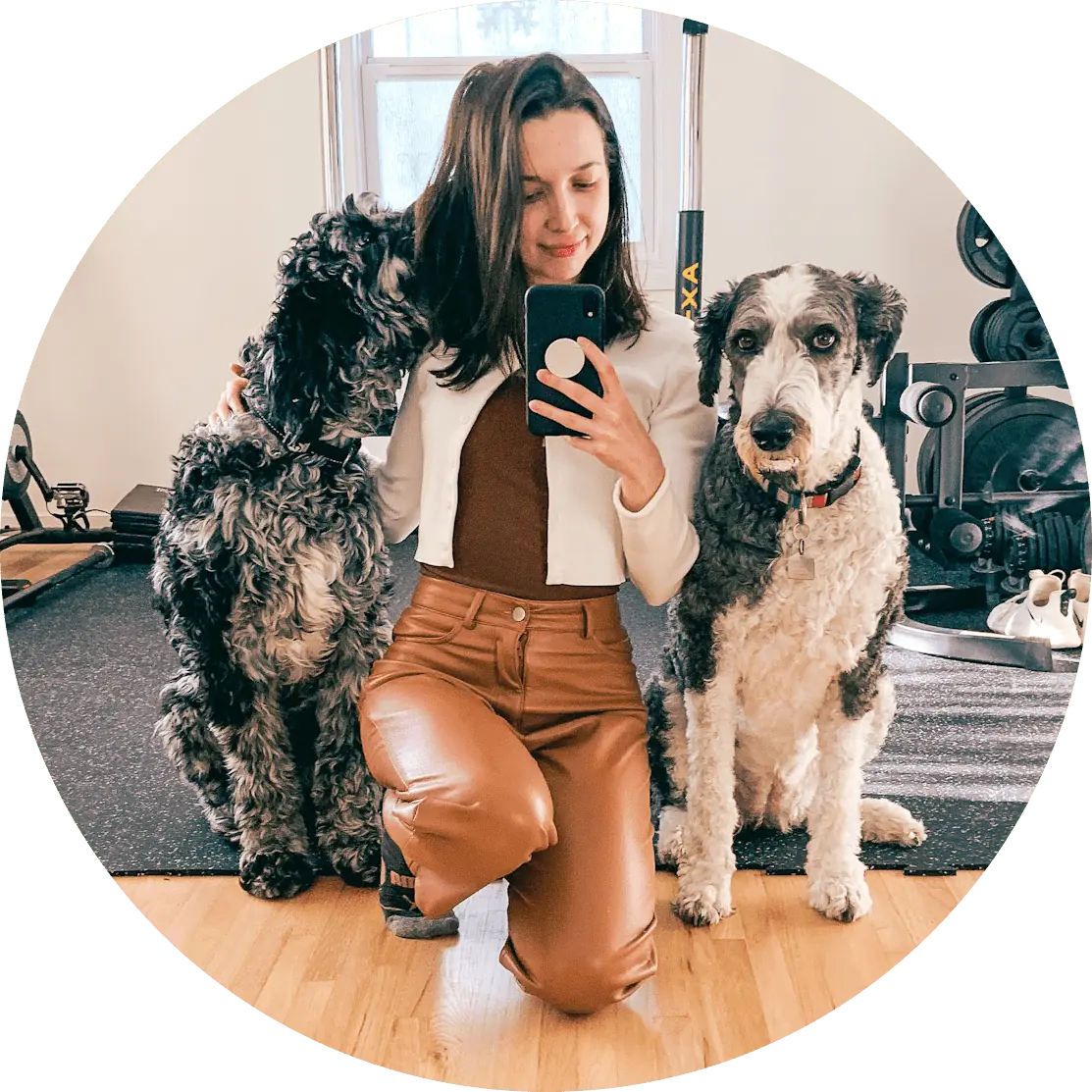
About the Author:
Dana owns a Sheepadoodle and a rescue merle Labradoodle. Her first dog growing up was a white Toy Poodle and she’s loved dogs ever since. She has years of experience fostering dogs and has helped find homes for a variety of different breeds, both large and small! After seeing so many dogs end up unwanted and in shelters, she began blogging about different dog breeds (specifically Doodle dogs, since that’s what she knows best) to help people make informed choices when adding a new member to their family.
When Dana’s not brushing her Doodles’ hair (it takes a lot of time for two!) you can find her playing nose work games and fetch with her two amazing pups.
Learn more about her here.

